Filter by
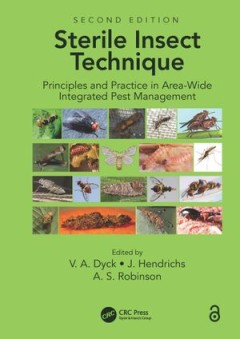
Sterile Insect Technique : Principles And Practice In Area-Wide Integrated Pe…
The sterile insect technique (SIT) is an environment-friendly method of pest control that integrates well into area-wide integrated pest management (AW-IPM) programmes. This book takes a generic, thematic, comprehensive, and global approach in describing the principles and practice of the SIT. The strengths and weaknesses, and successes and failures, of the SIT are evaluated openly and fairly f…
- Edition
- -
- ISBN/ISSN
- 9781003035572
- Collation
- -
- Series Title
- -
- Call Number
- -
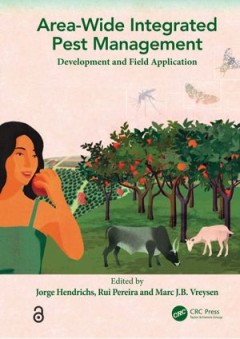
Area-wide Integrated Pest Management : Development and Field Application
Over 98% of sprayed insecticides and 95% of herbicides reach a destination other than their target species, including non-target species, air, water and soil. The extensive reliance on insecticide use reduces biodiversity, contributes to pollinator decline, destroys habitat, and threatens endangered species. This book offers a more effective application of the Integrated Pest Management (IPM) a…
- Edition
- -
- ISBN/ISSN
- 9781003169239
- Collation
- -
- Series Title
- -
- Call Number
- -

Human-Nature Interactions
This edited volume aims to widen the discussion about the diversity of human-nature relationships and valuation methods and to stimulate new perspective that are needed to build a more sustainable future, especially in face of ongoing socio-environmental changes. Conceptual and empirical approaches, including qualitative, quantitative, and mixed methodologies have been used to highlight the imp…
- Edition
- -
- ISBN/ISSN
- 978-3-031-01980-7
- Collation
- -
- Series Title
- -
- Call Number
- -

Applying Reflective Equilibrium
This open access book provides the first explicit case study for an application of the method of reflective equilibrium (RE), using it to develop and defend a precautionary principle. It thereby makes an important and original contribution to questions of philosophical method and methodology. The book shows step-by-step how RE is applied, and develops a methodological framework which will be us…
- Edition
- 1
- ISBN/ISSN
- 978-3-031-04333-8
- Collation
- -
- Series Title
- Logic, Argumentation & Reasoning
- Call Number
- XI, 273
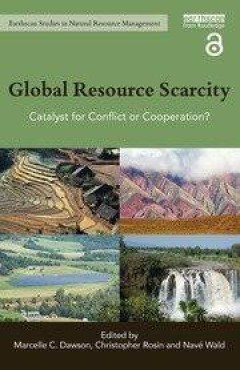
Global Resource Scarcity Catalyst for Conflict or Cooperation?
A common perception of global resource scarcity holds that it is inevitably a catalyst for conflict among nations; yet, paradoxically, incidents of such scarcity underlie some of the most important examples of international cooperation. This volume examines the wider potential for the experience of scarcity to promote cooperation in international relations and diplomacy beyond the traditional b…
- Edition
- -
- ISBN/ISSN
- 9781315281605
- Collation
- -
- Series Title
- -
- Call Number
- -

Mining and indigenous livelihoods: rights, revenues, and resistance
The space left for indigenous peoples' voices in Canadian and Fennoscandian mining legal frameworks : a comparative analysis / Zoé Boirin-Fargues and Sophie Thériault -- Closure and connection : a Southwest Pacific reappraisal of the mining enclave / Pierre-Yves Le Meur and Glenn Banks -- Foreign investor accountability for the violation of indigenous peoples' rights in international invest…
- Edition
- -
- ISBN/ISSN
- 9781003406433
- Collation
- -
- Series Title
- -
- Call Number
- -

Land tenure reform in Sub-Saharan Africa: interventions in Benin, Ethiopia, R…
- Edition
- -
- ISBN/ISSN
- 9781003365679
- Collation
- -
- Series Title
- -
- Call Number
- -
- Edition
- -
- ISBN/ISSN
- 9781003365679
- Collation
- -
- Series Title
- -
- Call Number
- -

Beyond Versus: The Struggle to Understand the Interaction of Nature and Nurture
Why the "nature versus nurture" debate persists despite widespread recognition that human traits arise from the interaction of nature and nurture.OCLC-licensed vendor bibliographic record.
- Edition
- -
- ISBN/ISSN
- 9780262324144
- Collation
- 1 online resource (xiii, 279 pages).
- Series Title
- -
- Call Number
- -
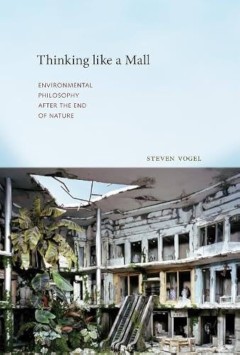
Thinking like a Mall: Environmental Philosophy after the End of Nature
A provocative argument that environmental thinking would be better off if it dropped the concept of ""nature"" altogether and spoke instead of the built environment.OCLC-licensed vendor bibliographic record.
- Edition
- -
- ISBN/ISSN
- 9780262326988
- Collation
- 1 online resource (x, 283 pages) :illustrations
- Series Title
- -
- Call Number
- -
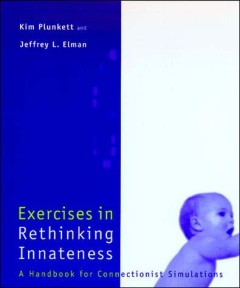
Exercises in rethinking innateness: A handbook for connectionist simulations
OCLC-licensed vendor bibliographic record.
- Edition
- -
- ISBN/ISSN
- 9780262287081
- Collation
- 1 online resource.
- Series Title
- -
- Call Number
- -
 Computer Science, Information & General Works
Computer Science, Information & General Works  Philosophy & Psychology
Philosophy & Psychology  Religion
Religion  Social Sciences
Social Sciences  Language
Language  Pure Science
Pure Science  Applied Sciences
Applied Sciences  Art & Recreation
Art & Recreation  Literature
Literature  History & Geography
History & Geography